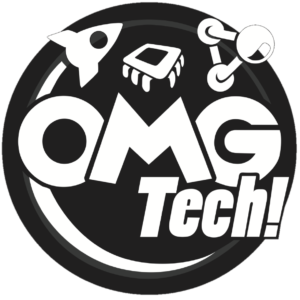The perfect place for a tech education conference
Las Vegas is, perhaps, the epitome of how many of us in Aotearoa (NZ) see the USA - big, bold, loud, and out of touch with the outside world. Walk a block or two away from The Strip and the stark inequities become apparent - crumbling streets and apartments surrounded by a layer of dust and rubbish.
Money talks in this "Disneyland for adults", and the big 3 casino companies don't have time to think about the locals. I was the sole diner at a Thai restaurant - normally packed on a Friday, but empty due to hideous traffic caused by Formula One preparations and a mega car convention.
This was, then, a fitting setting for an A.I.-focused Computer Science Education Convention, hosted by Code.org; when the opportunities provided by this new way of working with technology has the potential to make money for big tech companies and to ignore minorities and deepen digital and economic divides.
A.I. Education
The main message of the conference was that A.I. is here, and in order to navigate the opportunities, bias, and pitfalls, all students need to understand how it works. To quote TeachAI: “Attempting to enforce general bans on AI is a futile effort that serves to widen the digital divide”.
There are several recent initiatives to support A.I. education:
TeachAI.org, the combined effort of 4 educational institutions and the World Economic Forum, recently released an AI Guidance for Schools toolkit
The theme for this year's Hour of Code is "Creativity with A.I."
aiEDU also has a wealth of resources, including A.I. in 5 minutes
Challenges and Solutions
Despite the fact that everyone at the conference was talking about how important it was to ensure there is reduced bias in the data, and to be focused on reducing inequity and promoting inclusion, there was little focus on how to do that.
Our kaiarahi, Vivian Chandra, spoke on a panel about Preparing Educators to Teach Computer Science, painting a picture of the educational landscapes in Aotearoa NZ, and how OMGTech! works with Māori & Pasifika communities to realise & utilise the positive impacts of digital tech.
Sharing Aotearoa's Model
In fact, listening to the experiences and challenges from US and international conference attendees, I couldn't help feeling that our education system here in Aotearoa is progressive in terms of reducing inequity and promoting inclusion in Digital Tech:
Inclusive Curricula. Digital Tech is embedded in our NZ Curriculum (Te Mātaiaho) and Te Marautanga o Aotearoa (curriculum for Māori schools). This is not the case in many US states, where educational policy happens at a state level. Of course, this doesn't guarantee effective implementation, but it does put the onus on schools/kura and kaiako to teach it. This means all students get the opportunity to learn about Digital Tech.
Integration & Design Design and integration across learning areas is an explicit and important part of how we teach Digital Tech in our curricula - it’s not just Computer Science. This creates a more inclusive curriculum where different strengths are combined to tackle authentic purposeful user-focused projects.
Community consultation. Our public schools are required to consult with whānau, hapu, and the local community, because we’ve realised that it’s important to consider & involve everyone in what our tamariki learn, especially big changes. Schools don’t just grow young learners, they grow communities.
Building cultural understanding. Learning about Te Ao Māori and Aotearoa Histories is now an important part of the NZ Curriculum. Growing student and teacher cultural capability is better for all learners, and the flow-on effect into our society will slowly start to heal the divisions caused by colonisation.
Vivian & I were able to share these elements, as well as insights from our work growing digital fluency in schools, during the pre-conference with International organisations, and during the conference itself. The connections made, especially with Native American organisations such as AISES.org, have the potential to be mutually supportive in striving for equity and diversity in STEAM/STEMM education, and I’d like to thank InternetNZ for supporting our participation - being there in person cuts through the noise and opens meaningful relationships.
Challenges for Indigenous Communities
Our experience at OMGTech! is that learners are more likely to enter into the digital tech sector if they can see role models and values reflected in both the lesson content and the way in which lessons are taught (or skills and knowledge are acquired).
The challenge for indigenous communities is firstly for existing organisations to recognise this, and secondly to create lesson content which reflects their cultural values - no easy feat when some communities have distinct languages; for example, Australia has over 250 indigenous languages within just under 1 million indigenous people.
Perhaps A.I. can assist with creating the language models and the lesson content for these communities. Local initiatives from Te Hiku Media and FranklyAI are paving the way, and inspiring others around the world, like the Flair initiative.
Data sovereignty is also an important issue for indigenous communities, as it should be for all countries, especially when using A.I. services provided by tech firms from other countries.
Global Lessons
There is much the rest of the world can learn from our educational model for Digital Tech in Aotearoa.
However, if there’s one lesson learnt from this Code.org conference which I would share with all teachers and senior leadership, it’s this: engage with A.I. now and get your school community involved.
Only by experiencing A.I. can we understand the potential and challenges, and only through understanding A.I. can we create effective policy for our schools/kura, and enable our ākonga to thrive in the age of A.I.
If you would like support with creating policy around the use of A.I. in your school/kura, we’re running free introductory workshops to the TeachAI Toolkit in the New Year: Click here for registration details.
Dangerous verbosity by Geoff Bentley - PLD facilitator and Lead Educator at OMGTech!


